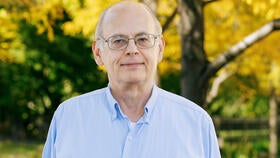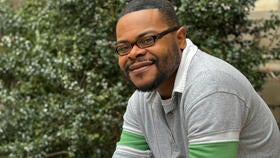
As head of Talent Acquisition (TA) in Human Resources, Janet Gipson leads a team of TA professionals responsible for all aspects of staff hiring for the university, including the function and placement of recruiting technologies, processes, and people that deliver talent for Yale. Gipson chose talent acquisition after a successful career in sales engineering and business development. Your Yale sat down with Gipson to learn more about her career path.
| Title | Head of talent acquisition, Human Resources |
|---|---|
| Time in current position | 1 year and six months |
| Started at Yale | 2022 |
What does your current role entail?
As head of Talent Acquisition, I lead the team responsible for staff hiring including processing of temporary hiring. We also are responsible for the technology and processes supporting university hiring. We do not manage faculty hiring. We get to partner with leaders on their hiring strategies to meet their staff and department goals.
We help the hiring managers identify whom to hire while supporting them throughout the entire process. With full-time hires, the talent acquisition partners and sourcing specialists work together to determine the desired strategy for finding talent. Based on what the hiring manager asked for, we can look at certain companies, websites, or job boards and conduct focused outreach. Our goal is to proactively identify talent. Additionally, we want to make sure to keep diversity, equity, inclusion, and belonging at the forefront of our hiring manager engagement, and we created resources to aid in that.
We hire about 2,200 staff a year. We partner with the hiring managers in extending offers to candidates and help present our benefits in a meaningful way. It’s such an exciting opportunity — I call it the red carpet — to be at the forefront of the hiring process. We’re their first contact, in many cases at the university.
What was your early academic journey like?
Both my parents were scientists; My dad received advanced degrees in physics and taught high school physics for many years. My mother earned her doctorate in mechanical engineering. As a student, when I didn’t understand a concept in math or science, they would help explain it to me. I’ve built some good muscle memory in the science space. I was also a candy striper and a cheerleader in high school; I enjoyed interacting with people.
In choosing my major in college, I still had an aptitude in math and science, and I wanted to attend Spelman College. The dual degree program permitted me to major in math at Spelman and mechanical engineering at Georgia Tech. I graduated in five and a half years with two undergraduate degrees. It was the best of both worlds.
How did engineering lead to talent acquisition?
It was not a straight line. After two to three years working as an engineer, I decided it wasn’t my thing. I came to this decision after working for a private shipyard and the U.S. Army. I realized I enjoyed human interaction and collaboration but did not know how to find my next role. I enrolled in The College of William and Mary to pursue my MBA. It was important to me that my first job post graduate school blend my technical background and desire for interaction. I hired a career coach, and I landed my target role of sales engineer at DISH Network, the satellite television company.
"It’s such an exciting opportunity — I call it the red carpet — to be at the forefront of the hiring process. We’re [candiates’] first contact, in many cases at the university."
I spent the next 18 years in roles of increasing responsibility, all housed within the engineering team at DISH. We designed and manufactured all the customer premise equipment receiving the television programming. My team was responsible for selling that hardware and software internationally, and it grew to a $200 million a year business for DISH. Personally, I built an affinity for solving the puzzle of communicating with clients and addressing their technology, programming, and content delivery needs. I also developed my love of coaching, leading, and mentoring team members to achieve our goals.
After some years, I enlisted the support of another coach to help identify my next role, and it led me to apply for the VP of Talent Acquisition for DISH. This time, it was the chance to have an impact on the TA team and applicants to help them find their next role while also designing processes and delivering the technology that ties it together — a perfect blend of people, processes, and technology.
Coming to Yale allowed me to continue my appreciation for sales and marketing and business development tactics to build a successful TA team. Strategic sourcing is a key component that we’re embarking on, and it is new for the university. As the talent markets shifted before and during the COVID-19 pandemic, candidates not only considered where they wanted to work, but how they wanted to work, with newer generations looking for more value alignment with their employers and the cultures they represent. TA has had to shift to leading job search conversations with why a person should work at Yale and what the value proposition is to them.
What are your favorite parts about working at Yale?
I am a lifelong learner, and I had no idea that as a Yale staff member, I had access to the amazing cultural and educational aspects of the university. To have access to the research and academic rigor that permeates the campus was a win-win for me. As far as my role in TA, I hit the jackpot with an amazing team. They are a close-knit team and were gracious enough to accept me as their leader. They work hard and you won’t find a more thoughtful group of individuals.
What has been your proudest moment on the job so far?
The Recruiting Strategic Initiative (RSI) launched before I came to Yale, and it is one of the key Operations strategic initiatives at the university. My proudest moment has been the growth of the TA team in their delivery of the new RSI service delivery model and how it is resonating with our hiring managers. Their trust and engagement throughout this process has been key to our continued progress and we’re seeing evidence of the impact they’re making.






